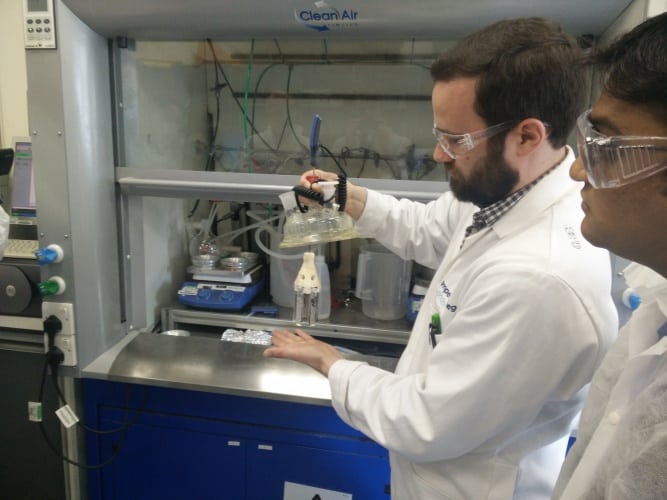Located near Chennai, the project aims to help the 10MW coal-fired power station become a ‘zero-emission plant’, with the captured CO2 used locally for soda ash production.
During a visit to CCSL’s research facility at Imperial College earlier this year, The Engineer heard how the company hopes to reduce the cost of CCS to $10 a tonne by 2018. Current CCS technologies typically cost between $60-90 per tonnes, and CCSL is hailing the new privately funded scheme as a major breakthrough. With fracking in Lancashire given the green light last week, CCS technology could be a crucial tool to help the UK meet both its energy needs and climate targets.

“This project is a game-changer,” said Aniruddha Sharma, chief executive officer at CCSL.
“By capturing and crucially, re-using, CO2 at just $30 per/tonne, we believe that there is an opportunity to dramatically accelerate uptake of CCU (carbon capture and utilisation) technology, with its many benefits, around the world. This is a project that doesn’t rely on government funding or subsidies – it just makes great business sense.”
Between November 2015 and May 2016, CCSL ran a test programme at Technology Centre Mongstad in Norway, the world’s largest CO2 capture demonstration plant. The company says its proprietary solvent provided a 20 per cent reduction in energy costs, with eight times less solvent lost in the process and a seven times reduction in corrosion to the capture plant equipment.
According to the CCSL, its technology has now been proven at pilot scale in five countries: the UK, USA, Germany, Norway and the Netherlands. The company operates offices in India, the UK and the US.


Red Bull makes hydrogen fuel cell play with AVL
Formula 1 is an anachronistic anomaly where its only cutting edge is in engine development. The rules prohibit any real innovation and there would be...